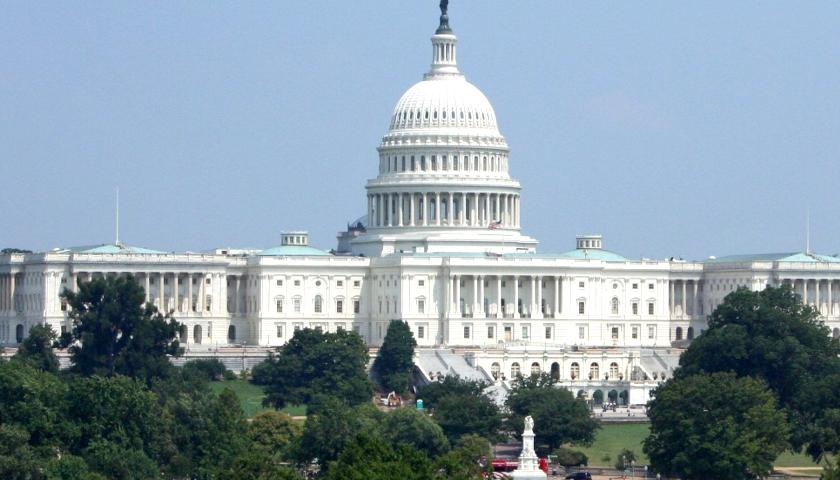One of my favorite short stories is “The Lame Shall Enter First” by Flannery O’Connor. The plot centers on a young, atheist widower who takes in a violent teenage orphan and attempts to reform him. Neglecting his own young and motherless son, the widower focuses all his love and attention on the delinquent teen, even blinding himself to certain crimes the teen commits.
As is common in O’Connor’s work, the ending is gut-wrenching, with the father realizing his neglectful behavior too late as his son commits suicide.
This complex morality tale came to mind after reading some of the outraged reactions to President Trump’s emergency border measures, including his restrictions on international travel, his suspension of refugee processing, later topped off by the “immigration halt” executive order.
Even in the face of a global pandemic, some members of the anti-borders lobby apparently still couldn’t fathom the nation-first principles behind such policies. Amnesty International’s Charanya Krishnaswami, for instance, called the changes “cruel, short-sighted, and opportunistic” before claiming that “every person has the right to seek safety. Full stop.”
Yet early polls show the popularity of the travel ban, with a stunning three-quarters of respondents approving of it as a protective measure. More recent polls show an even higher percentage of Americans favoring an “immigration halt.”
Much has been written about the pandemic’s challenge to entrenched globalism. Undoubtedly, it has separated the fellow-travelers from the die-hard dogmatists, showing a key difference between the two. While the former might ask whether a balance has been struck between Trump’s border moves and the health of the nation, the latter would say there is no question. For them, putting the rights of citizens before the privileges we bestow to foreigners discriminates; therefore, it’s immoral.
But isn’t that what all nations do, especially in times of crisis? For instance, Canada’s liberal government followed Trump’s directive to stop international travel (48 hours after decrying it) and has since stopped processing asylee and refugee claims (after promising it wouldn’t). But because its own ban on incoming travel made an exception for Canadians stranded abroad (just like American policy), one commentator labeled it “classist” because it “implicitly states that citizens deserve the safety and comfort of Canada, but migrants do not.” I would agree; it is a “classist” policy, or at least one that does discriminate. This is what nations do, and must do, if citizenship is to mean anything. Those who maintain that we must acknowledge a global right to free mobility, in or outside times like these, utterly fail to understand the complexities that may arise in moral situations.
Philosophy professor John Lachs once made an interesting comparison between nations, national boundaries, and the family unit, writing: “One’s own children cannot be told to get in line with all those needing to be fed; the fact that they are ours gives them priority and imposes overriding obligations on us.”
To forgo the nation and put the foreigner ahead of the fellow citizen – as O’Connor’s atheist protagonist did with his own child – is not a supreme virtue, but a diabolic vice. As O’Connor adeptly shows, the father’s perceived humanitarianism was actually rooted in self-aggrandizement and in relieving a sense of guilt he felt toward the orphaned teen. His actions were self-interested, not based on genuine moral, philanthropic considerations.
Various philosophers have tackled the problem of misguided philanthropy and pathological altruism. Michael Novak once described rootless liberalism as being oddly characterized by both an “exaggerated individualism” and “an exaggerated sense of universal community.” “The middle term between these two extremes” he said, that is, “the term pointing to the finite human communities in which individuals live and have their being,” is “precisely the term that the liberal personality disvalues.” By leaping over their own local and national communities and into the Third World when relieving their altruistic urges, it’s as if they perceive philanthropy only in the abstract. Further, they seem compelled by some sort of guilt complex; due, for instance, to the West’s history of Third World colonialism, or to present global wealth disparities.
It’s Novak’s “middle term” of community and nation which is ironically so core to the greater, universal humanitarianism pursued by globalists. As the great Edmund Burke said, “to love the little platoon we belong to in society, is the first principle of public affections… it is the first link in the series by which we proceed towards a love to our country, and to mankind.” The late political philosopher George Grant similarly espoused this principle when he wrote:
“It is true that no particularism can adequately incarnate the good. But is it not also true that only through some particular roots, however partial, can human beings first grasp what is good and it is the juice of such roots which for most men sustain their partaking in a more universal good?”
Before stepping out into the global community, one first needs a firm grounding in the global community’s basic unit: the nation. Showing love and dedication to one’s own seems an obvious prerequisite to extending the same to strangers. How, for instance, can one show an understanding for the needs, values, and traditions of other nations when they disregard those of their own?






Just check the records. The U.S. LEGALLY takes in 1 to 2 million immigrants per year and has done so for years. The interesting thing is that count is more than the rest of the nations combined. But to some it is not enough. As our country slips under the waves of bankruptcy in what may turn out to be the worst recession / depression in 100 years, it is still not enough? When does raging altruism verge on madness? The writer of Proverbs said it best in Proverbs 14:12: “There is a way which seemeth right unto a man, but the end thereof are the ways of death.”
Cries of “Oh, the Humanity”, of those who observe struggling refugees, are overwhelmed by the muffled screams of those never to be born citizens of our own country. Most of those lives are cut short as a matter of “convenience”.
When is enough enough on immigration? 350 million? 400 million? 1/2 a billion? We are full,over crowded,too much congestion,urban sprawl,ethnic conflict,driving down wages….Stop all immigration….It is insanity